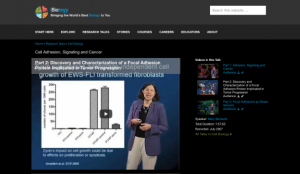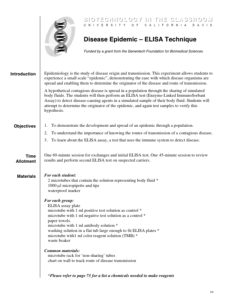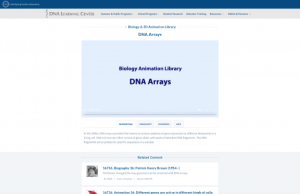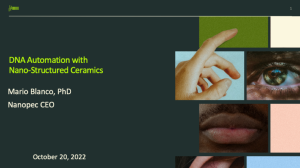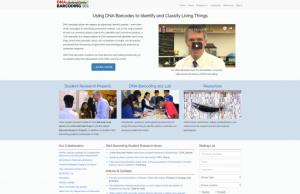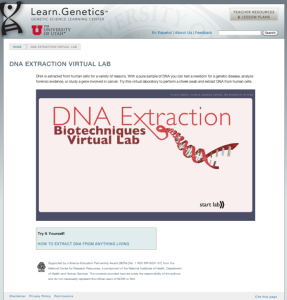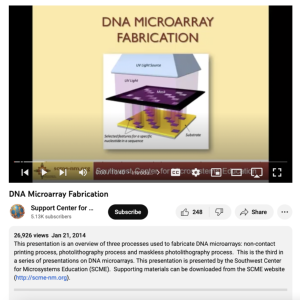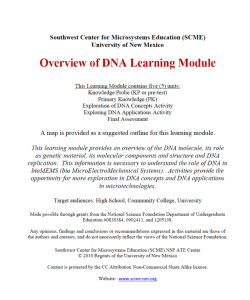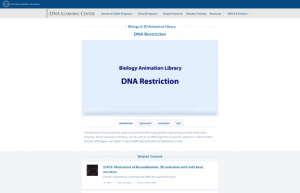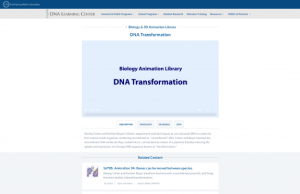Browse Resources
Resources | |
|---|---|
This lecture from the iBioSeminars project is presented by Mary C. Berckerle from the Huntsman Cancer Institute at the University of Utah and covers the identification of the focal adhesion protein, zyxin, by a lab. Recent work revealed that zyxin is down-regulated upon expression of the Ewing...
From the University of California, Davis, Partnership for Plant Genomics Education, this biotechnology laboratory is a two-day activity using the ELISA assay, a "test that uses the immune system to detect disease," to study the epidemiology of a hypothetical small scale epidemic. The lesson gives...
This animation from Cold Spring Harbor Laboratory's Dolan DNA Learning Center presents DNA arrays. The animation contains information on Pat Brown's discovery and the purpose of DNA arrays to study gene expression as well as its role in the development of pharmacogenomic treatment for diseases such...
In this video from the NACK Center, Mario Blanco explores fully synthetic oligonucleotides and how the use of nano-structured ceramic films enables the synthesis of hundreds of DNA genes in gram quantities overnight. Furthermore, Blanco describes how these nano-structured ceramics can be...
The Using DNA Barcodes to Identify and Classify Living Things laboratory demonstrates several important concepts of modern biology. During the course of this laboratory, students will collect and analyze sequence data from plants or animals or products from them, use DNA sequences to identify...
This virtual lab from the Genetic Science Learning Center at the University of Utah provides an overview of DNA extraction, including what it's used for, illustrations, and an activity using cheek cells and laboratory equipment to isolate DNA. The lab is followed by a classroom activity that allows...
In this video, created by Support Center for Microsystems Education (SCME), viewers are introduced to the concept of DNA microarray fabrication. Specific topics include: non-contact printing process, photolithography process and maskless photolithography process. This is the third in a series of...
Module Description:
This module, from Support Center for Microsystems Education (SCME), provides "an overview of the DNA molecule, its role as genetic material, its molecular components and structure and DNA replication." The module is divided into the following five units: Knowledge Probe (KP or...
The discovery of enzymes that could cut and paste DNA made genetic engineering possible. Restriction enzymes, found naturally in bacteria, can be used to cut DNA fragment at specific sequences, while another enzyme, DNA ligase, can attach or rejoin DNA fragments with complementary ends. This...
Stanley Cohen and Herbert Boyer's historic experiment used techniques to cut and paste DNA to create the first custom-made organism containing recombined or 'recombinant' DNA. Cohen and Boyer inserted the recombinant DNA molecule they created into E. coli bacteria by means of a plasmid, thereby...
| |
| ← Previous | Next → |
